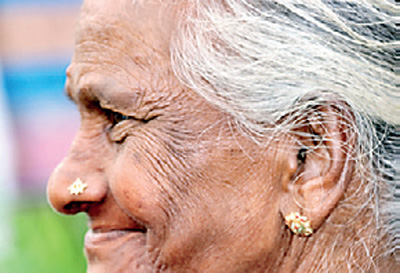Saturday Feb 21, 2026
Saturday Feb 21, 2026
Wednesday, 21 July 2021 00:21 - - {{hitsCtrl.values.hits}}
 The COVID-19 pandemic provides an opportunity for Sri Lanka to review and strengthen its social protection programs to help citizens recover more quickly from future shocks. Social protection includes social assistance (welfare programs for the poorest), social
The COVID-19 pandemic provides an opportunity for Sri Lanka to review and strengthen its social protection programs to help citizens recover more quickly from future shocks. Social protection includes social assistance (welfare programs for the poorest), social
insurance (for unemployment, disability, illness and old age), and programs to enhance opportunities to help people find better jobs.
The World Bank is supporting the Government to reform and improve its social protection policies and programs. At the heart of these efforts is the development of a national social protection strategy. Sri Lanka has never had a cohesive social protection strategy, which in many countries is used as a common guide and planning tool for Government welfare programs.
Sri Lanka’s social protection programs have been introduced sporadically. This has limited their impact and prevented them from working in tandem with other Government programs like education, health and disaster response. Because there is no overall framework for thinking about welfare, there are still big gaps in the safety net, such as for informal workers. Therefore, there is a need for a clear strategy for social protection.
“Social protection is fundamentally about managing risk. It’s about having a real safety net that prevents people from falling into poverty and helps those who lose their incomes recover. It goes beyond addressing chronic poverty or the long-term drivers of social exclusion to look at job and employment security and the help people can expect to receive if they get sick or lose their jobs,” said World Bank Senior Economist Dr. Thomas Walker.
The COVID-19 crisis is requiring policymakers to redefine their understanding of ‘poor and vulnerable.’ The pandemic has affected many people economically, with perhaps the majority experiencing significant falls in their standards of living. In the context of COVID-19, the simplistic dichotomy of the ‘poor and non-poor’ – which has often driven social protection policy – is not a useful tool for thinking about who really needs the Government’s help.
The pandemic has also proven that shocks can push even relatively financially secure people into a difficult situation. Countries around the world have begun to realise that a broader approach to safety nets, making use of advances in identification and information technology, is needed to ensure all households can get temporary assistance and recover quickly following a negative shock. This is particularly important in a context such as Sri Lanka’s, in which the majority of the population were living on relatively low incomes even prior to the crisis.
Countries such as Pakistan and the Philippines pre-position financial resources to help respond to shocks. This includes external insurance programs for natural disasters such as the one adopted by Sri Lanka in 2016, or a mechanism for reallocating funds that can be efficiently used to provide support to households.
Well-targeted policies also save precious public funds and can help vulnerable groups in the long term. Sri Lanka’s strained fiscal circumstances and large budget deficits create a compelling need for the Government to revisit the targeting of its social protection programs.
“In Sri Lanka, social protection spending has not had a big impact on reducing poverty. This limited impact is due to weak targeting, which means the funds do not always go to those who need them most. In the case of Samurdhi, which is the Government’s largest social welfare program, the funds are spread too thinly. Better targeting could help concentrate resources on the poorest 10%-15% of the population, helping them increase their incomes and move out of poverty.”
The World Bank estimates that by 2030, one in every five Sri Lankans will be over the age of 60. The country’s changing demographic situation makes it essential to broaden the coverage of social insurance programs. Only about 30% of citizens are currently covered by a formal pension. Women are much less likely to have their own pension, and on average will live seven years longer than men. This makes it essential that they have adequate support in their retirement.
“A large portion of workers will retire with no regular income, and the State will either have to pay for those people through welfare or they will have to depend on the charity of friends and family. This will be increasingly difficult as the dependency ratio increases,” Dr. Walker added.
A coherent strategy aimed at delivering a long-term vision for social protection for all Sri Lankans could benefit and improve the lives of millions.